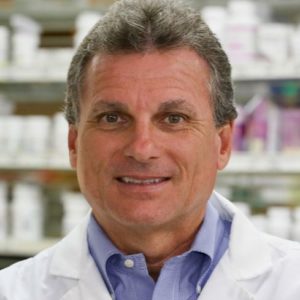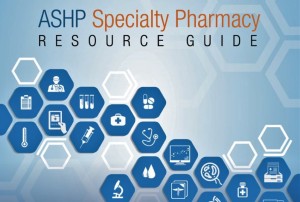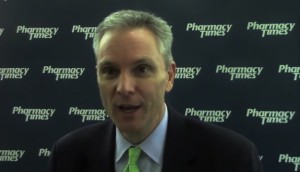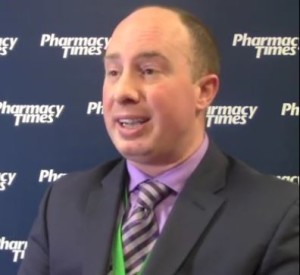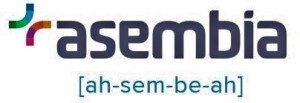- The most overtrained and under utilized profession in America (thehill.com)
In the more than thirty years I have practiced pharmacy, I have witnessed a tremendous evolution in the profession. The clinical foundation and training of a pharmacist graduating today is leaps and bounds above where I started my practice. However, one thing has not changed: a pharmacists’ role in patient care goes well beyond dispensing medications...Today, as before, many pharmacists provide patient-centered services...We are the front line of the health care team and often see patients more than any other provider. Pharmacists have become the most over-trained and under-utilized professionals in America...While doctors should remain the quarterbacks, pharmacists must be given "provider status" so the profession is able to be the integral part of the health care team we are trained to be...With provider status, pharmacists would be added to the list of Medicare providers which would not only allow for the best possible care for patients but would also ensure it is done in the most cost-effective manner...In my short time in Washington I have come to realize just how hard it can be to advance commonsense reform...a bipartisan majority of 272 members have cosponsored the Pharmacy and Medically Underserved Areas Enhancement Act introduced by Representative Brett Guthrie. This legislation simply gives pharmacists provider status...let’s move forward...to improve access to quality and affordable health care for all Americans.
- DH launch consultation on hub and spoke and prices on labels (psnc.org.uk)Is hub and spoke really the answer for pharmacy? (pharmacymagazine.co.uk)
The Department of Health and the Medicines and Healthcare products Regulatory Agency have launched a consultation on changes to the Human Medicines Regulations and the Medicines Act...The consultation seeks views on the following proposed changes:
- allowing independent pharmacies to make use of ‘hub and spoke’ dispensing models – a ‘hub’ pharmacy dispenses medicines on a large scale, often by making use of automation, preparing and assembling the medicines for regular ‘spoke’ pharmacies that supply the medicines to the patient;
- allowing the price of medicines and a statement on how the costs of medicines are met to be published on dispensing labels should this be required for NHS medicines dispensed as part of NHS pharmaceutical services;
- clarifying the current dispensing label requirements for monitored dosage systems and medicines supplied under patient group directions; and
- amending the pharmacists’ exemption in section 10 of the Medicines Act, regarding the preparation and assembly of medicines, following a judgment of the Court of Justice of the European Union.
- ASHP Publishes Specialty Resource Guide (ashp.org)ASHP Specialty Pharmacy Resource Guide (ashp.org)
ASHP has released the ASHP Specialty Pharmacy Resource Guide, a new publication that outlines ways for hospitals and health systems to address the challenges and opportunities presented by specialty pharmacy, the fastest growing segment of the pharmaceutical industry... It is projected that by 2020, specialty pharmaceuticals will represent half of all drug expenditures, driving pharmacy directors to seek out strategies to address the impact of the products on pharmacy services. The resource guide discusses the financial, legal, administrative, and patient care aspects of four specialty pharmacy business models and helps users determine which model best matches their needs.
- How Pharmacists Can Help Prepare Patients for Natural Disasters (pharmacytimes.com)
Jon Roth, CEO of the California Pharmacists Association, explains how pharmacists can help prepare their patients for natural disasters.
- Government Advocacy in Specialty Pharmacy (specialtypharmacytimes.com)
Current political debates...have highlighted specialty pharmacy in a less than favorable manner. When stories in national publications focus on the "Pharma Bro" and question relationships between pharmaceutical manufacturers and specialty pharmacies, we are bound to receive negative attention...The challenges we are currently facing could have dire consequences, and it is because of these challenges that we must participate in advocating for our industry. As a profession, we need to invest our time to gather together, speak up, and interact with our government officials at all levels...As a voice for our industry, we are a voice for our patients. We have the ability and responsibility to speak up, not only for ourselves, but also for the individuals who trust us with their care...Access and affordability of specialty medications are critical. Our patients have unique needs, as well as safety and care issues, and we must be a voice for them on the legislative and regulatory side...The key to winning the hearts and minds of legislators is approaching legislative issues the same way you approach your work every day: patients first. Demonstrate that your primary goal is having a positive impact on your patients’ well-being rather than your own bottom line...For more information on this topic, I encourage you to attend the panel, "The Practice of Specialty Pharmacy and Our Government Representatives" at the upcoming Armada Specialty Pharmacy Summit, on May 3, 2016. Armada, the largest US conference for specialty pharmacy, is an opportunity to learn about relevant industry topics, network with peers, and gain real insight into key issues...
- Lawyers consider judicial review of consultation on community pharmacy (pharmaceutical-journal.com)Hundreds of local chemists set to close leaving sick and elderly without vital lifeline (express.co.uk)
Lawyers have given health minister Alistair Burt a deadline of 4pm on 18 March 2016 to respond to claims that the consultation on proposed cuts to the pharmacy budget in England is illegal and should be abandoned...If the government does not accept that the consultation is illegal then lawyers will consider going to the High Court to seek a judicial review of the consultation process and the content of the consultation document...The prospect of legal action comes three months after the Department of Health first outlined its proposals for the community pharmacy sector in England in a letter to the Pharmaceutical Services Negotiating Committee. The letter...set out plans to cut the community pharmacy contractual framework by 6.1% in 2016. As well as the funding cuts, the proposals include a range of measures to make efficiency savings in the sector while extending clinical roles for the profession...Healthwatch England told the government that there is a "clear appetite" for community pharmacy to play a greater role in health prevention, the treatment of minor ailments and supporting people with long-term conditions. It says consumers value pharmacy’s accessibility and some believe co-locating pharmacies to GP surgeries makes sense...However, the organisation gives a cautious welcome to the idea of ‘hub-and-spoke’ dispensing and says that where medicines are assembled centrally, patients will still need local access to expert pharmacy advice.
- Non-pharmacologic Treatment Options for Opioid-Induced Constipation (pharmacytimes.com)
Daniel T. Abazia, PharmD, BCPS, discusses some of the non-pharmacologic treatment options that pharmacists can recommend to patients experiencing opioid-induced constipation.
- Armada renames as Asembia, launches new brand identity (drugstorenews.com)
Armada Health Care announced...that it would be launching a new brand identity and company name change to Asembia. With the new name, Asembia plans to continue expanding on its specialty pharmaceutical offerings, including solutions for pharmacies, pharmaceutical and biotech companies and payers...We are a very different company from when we first started more than a decade ago. In this regard, we are excited to announce our new corporate identity which we feel better reflects our broad array of capabilities and service offerings, each of which are developed collaboratively with our member pharmacy and manufacturer...
- Four Takeaways on Drug Spending Realities from the New 2015 Express Scripts Drug Trend Report (drugchannels.net)Express Scripts 2015 Drug Trend Report (lwlink3.linkwithin.com)
Last week, Express Scripts released its new 2015 Drug Trend Report...For the first time, the Express Scripts data account for rebates—a meaningful and welcome improvement in reporting methodology. After accounting for rebates, the 2015 report reveals that drug spending growth is comparable to growth in other parts of the healthcare system. For some payers, utilization (script growth) was a bigger driver of spending than drug prices...So much for the myth of exploding drug costs! Our politicians may not believe it, but Martin Shkreli et al. are the exception in the pharmaceutical industry. Below, I review the four key highlights about traditional and specialty drug spending, trend patterns for different payers, and a red flag from upcoming biosimilar launches.
FOUR TAKEAWAYS
- Commercial payers were better able to control costs.
- More people are getting access, which is “good” spending.
- Specialty growth continues.
- Hunker down for the biosimilar formulary wars.
- Specialty Pharmacy Times – Health Policy Check-Up (pharmacypodcast.com)
Dan Steiber, Editor in Chief for Specialty Pharmacy Times, speaks to True North P.S. President, Ron Lanton. What is limited distribution and its effect on specialty? What are the risks in arrangements between specialty pharmacies and manufacturers? (podcast 44:12 min)

